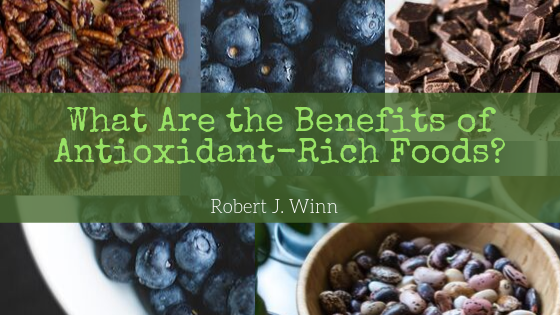If you’ve spent any amount of time perusing healthy eating and nutrition blogs, you’ve probably come across the term “antioxidant.” But what are they, and are they truly beneficial?
To answer this question, we need to understand a bit about how the body works. As your body breaks down food or ingests unhealthy substances (radiation or tobacco smoke), it produces free radicals. There’s really not anything you can do to avoid free radicals since they’re just part of natural biological processes. However, over time, they can build up in your body, causing oxidative stress. Scientists believe this condition plays a role in cellular degeneration and can damage DNA. This damage is associated with heart disease, type two diabetes, and cancer.
Antioxidants are compounds found in nutrient-rich foods that can neutralize the damaging effects of free radicals, thus reducing the risk of chronic health conditions. Regular consumption of foods rich in antioxidants has been found to increase the antioxidant blood levels in the body. Naturally occurring antioxidants are found in vegetables, fruits, whole-grain foods, cocoa, nuts, and seeds along with certain spices and herbs.
Antioxidants are a vital component in a healthy diet. They serve to detox your body, keep you healthy and active, and prevent the damage done by free radicals. The best news is, you’re probably already consuming many of the food considered high in antioxidants!
But What Foods Should I Eat?
The goal with antioxidants is to ensure you consume them regularly. Many delicious foods are high in antioxidants. Here are five top contenders:
- Dark Chocolate – You knew you liked dark chocolate for a reason! Dark chocolate contains more cocoa than milk chocolate and as such has higher antioxidant levels. According to researchers, the potential benefits of dark chocolate include reduced inflammation, promotion of good cholesterol, lowering the risk of heart disease, and changes of high blood pressure.
- Blueberries – Blueberries are one of the best sources of antioxidants. The antioxidants found in blueberries have been shown to slow the progression of declining brain functions that occur as we get older. They have also been linked to lowering the risk of heart disease.
- Pecans – Pecans are high in antioxidants as well as minerals and healthy fats. One study found that eating pecans lowered “bad” cholesterol levels by 26 to 33% in a two to eight-hour time span.
- Beans – Beans are a high fiber, inexpensive way to consume antioxidants. Beans, in all their variations, are part of the legume family. Pinto beans in particular show promise in suppressing the growth of certain types of cancer as well as reducing chronic inflammation.
- Spinach – Spinach is a lower calorie vegetable that is also rich in vitamins, antioxidants, and minerals. The antioxidants found in spinach may support eye health as well as preventing damage caused by UV rays.

